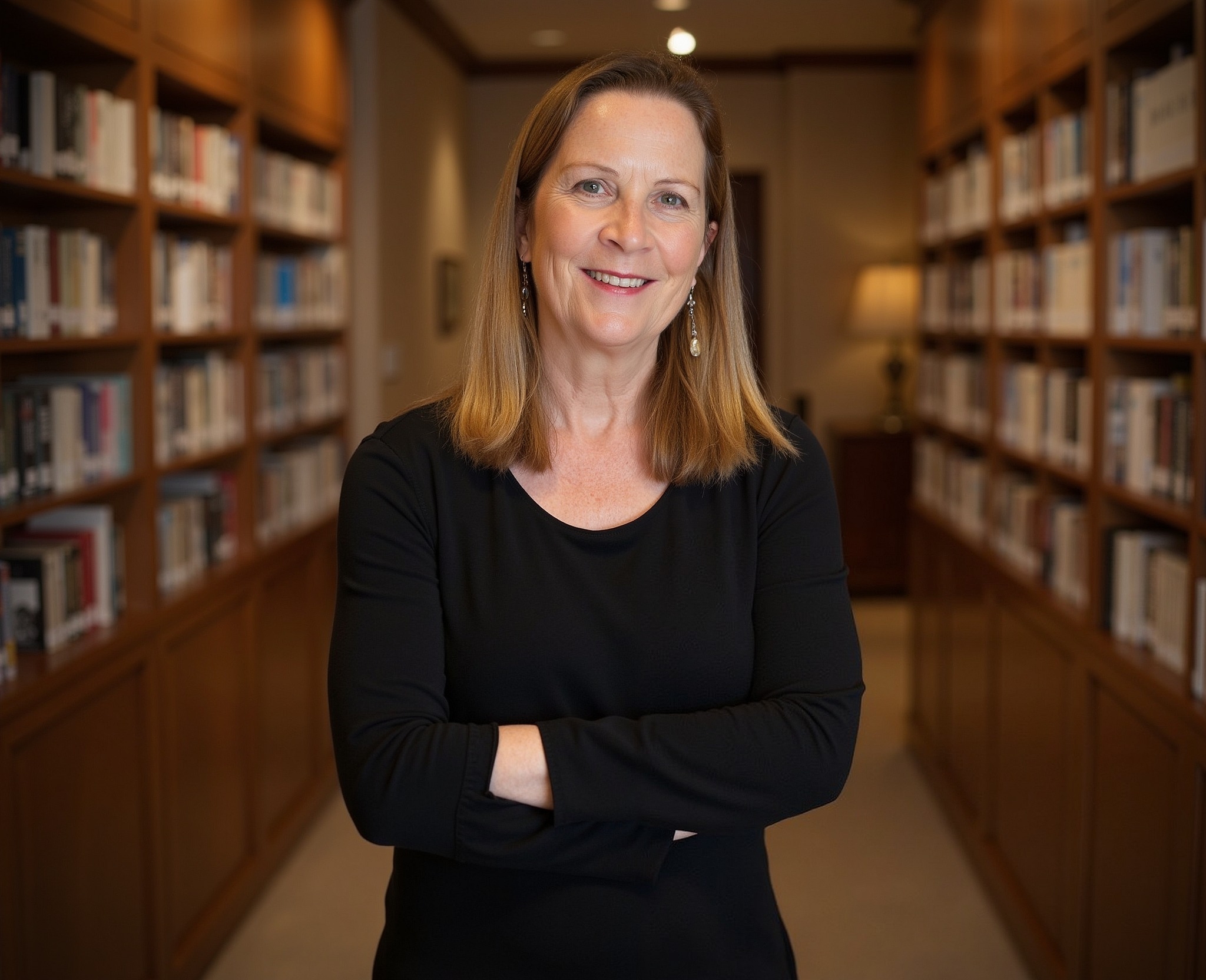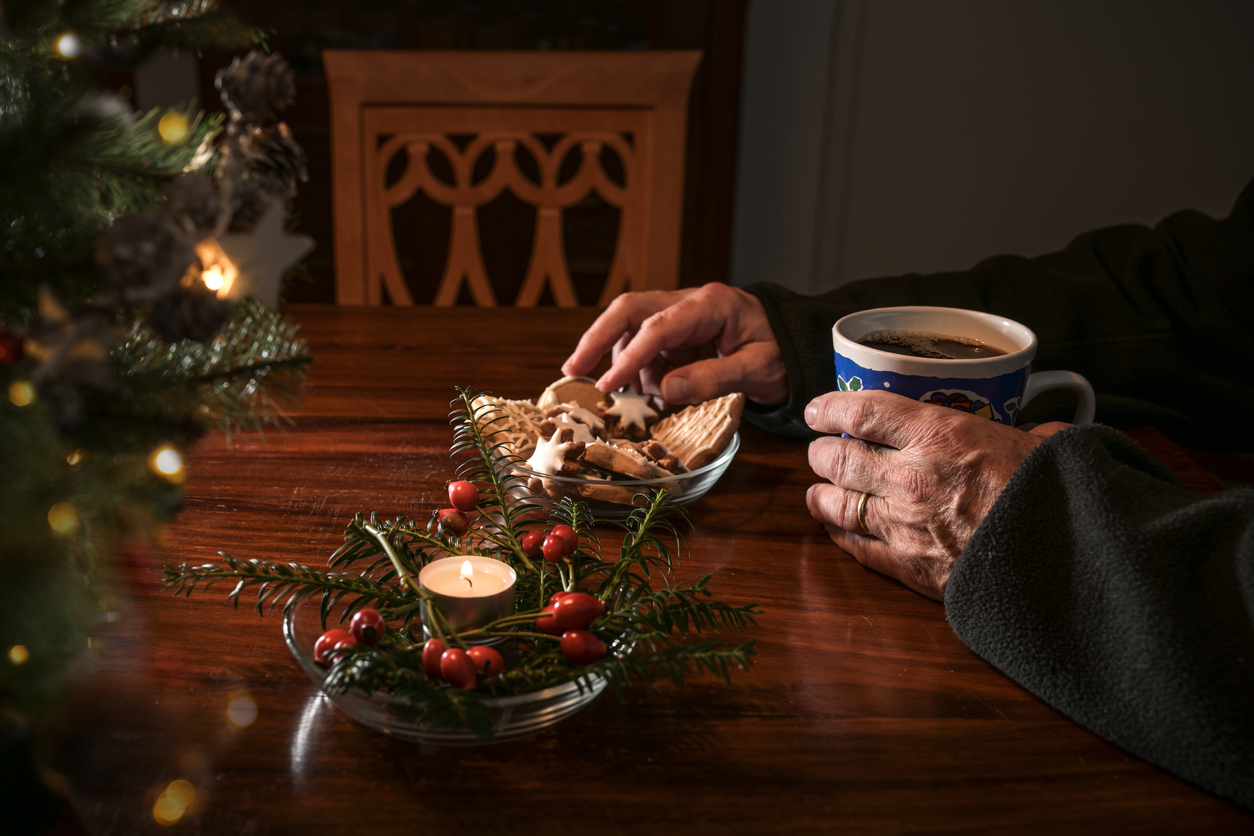Later this evening, I will pull on a winter coat and my protective face mask to attend a blue Christmas service in one of the churches in our Massachusetts town.
I don’t belong to any church or denomination. However, among our town’s 10 places of worship, I’ve visited seven–mostly for concerts or chowder lunches, or literary readings.
This year, our second COVID holiday, this blue Christmas service will be my only public and group event.
I’ve been here before. Three years ago, I spotted this service advertised on the church’s street side marquee board.
“Finally,” I remember thinking, as I snapped a photo of the date and time. “Someone is publicly acknowledging that, for some of us, the holidays are not all merry and bright. Instead, every day in December is a tidal pull downward and inward, toward some in-born sorrow.
Now, that 2018 blue Christmas event seems like a distant memory from our pre-pandemic history when few or none of us wore masks in public places. I remember candles flickering in the church windows. I remember solemn music and psalms and meditative moments. Most of all, I remember the sense of silent kinship among those of us who sat, even back then, apart in our pews and in our humble and shared sadness.
After that service, another attendee, whom I didn’t know, and I stood on the church’s wooden steps to talk. It was her first holiday since her son’s death. So that year, she just couldn’t get into the spirit. I commiserated with her loss. Yet, even in the face of her bereavement, I felt that I had to assure or remind this American woman that we can celebrate (or not) as or what we actually feel. That, for all its red bows and glittery trees, for all its TV advertisements and prodigal expenditures, December 25–or any holiday–can be just another date on the calendar.
And, for some or most of us, it’s a day of remembrance.
Grandmother. Grandfather. Partner. Parent(s). Child. Friend. Adored pet. Every year, in every household, around that festive table, someone or something has been lost–including, sometimes, a part of ourselves.
Now, in addition to our personal losses, we have 5,331,019 worldwide deaths from a virus that, in December 2019, most of us either ignored or couldn’t yet pronounce.
This past year, there have been days when I’ve felt truly lost. Or it felt like I had lost most or all of my faith–in life, in people, and perhaps worst of all, in my own capacity for mercy.
As a kid growing up in a multi-generational household in rural Ireland, our holidays were hardly what anyone could call Rockwellian (as in Norman Rockwell). Yet, at age nine and ten and, later, as a home-from-college teenager, I remember chopping and mixing for the sage and onion turkey stuffing while listening to that “Blue Christmas” song on our kitchen Transistor radio. Those lyrics (“I’ll have a blue Christmas without you”) always conjured an American man twanging on his guitar while gazing out on a snowy prairie.
Back then, in the smug and clueless arrogance of youth, I remember thinking that, really, that Elvis or Johnny Cash fellow should just go find himself a new girlfriend and stop ruining the holiday for the rest of us.
Now I’ve lived in the United States for 35 years–a decade longer than I lived in my native Ireland.
In the early years here, I went along with the workplace parties and the Yankee swaps and the secret Santas and the trash barrels full of crumpled-up wrapping paper–all while hoping that someone would turn down the volume.
Am I “blue” this Christmas? Or every Christmas? Yes. No. Or at least, not as my health insurance company or the DSM-5 diagnostic codes would define it.
In this deep midwinter, in addition to our COVID deaths, we are mourning yet more children getting gunned down in their classrooms. We are TV watching Tornado-ravaged families. We have video watched our fellow residents or citizens getting harassed or choked or gunned down by the civil servants paid to protect them. In this deep mid-winter, our therapists and governmental agencies are concerned about our escalating mental health crisis and a matching substance use spike–all these (and more) while we also read reports about the American-bound migrants trapped south of the U.S. border in Mexico.
So tell me, even without our own ghosts of our individual Christmases past, how do we not feel sorrow?
And I have to ask: If some of us feel extra “blue” at this time of year, how much of it is due to the shortfall between what we’re supposed to feel and what, in our souls, we actually do.
That night three years ago, I remember saying goodbye to that bereaved woman on the sidewalk outside that church.
At home, my husband asked how the service was. I sat in the living room armchair and told him that, for the first holiday season since childhood–or maybe ever–I felt unburdened. I felt as if that blue Christmas service had been some kind of passing over from one state into another–from seasonal sorrow to a small, quiet happiness. To my own version of a happy holiday.
I’m hoping that tonight will be the same.

Áine Greaney is an Irish-born writer who lives in coastal Massachusetts. Her work has appeared in various publications, including The Wisdom Daily, Creative Nonfiction, Salon, The New York Times, Books Ireland, The Mindful Word, World of Psychology, and others. Her fifth book has just been published by Sea Crow Press. She teaches writing at libraries, conferences, and health and wellness organizations.

